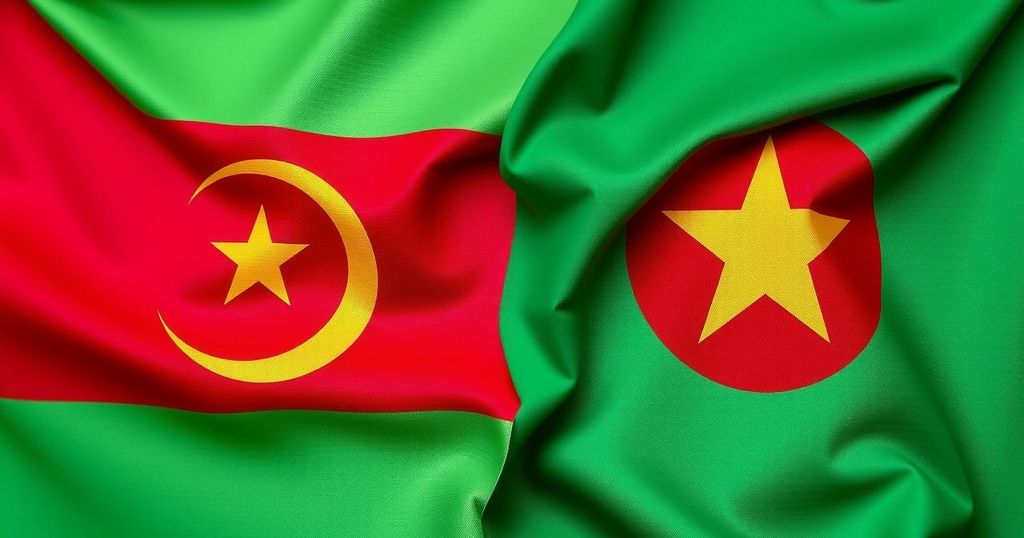Global news
ABD, ABDIRAHMAN MOHAMED ABDULLAHI, AFRICA, AL-SHABAAB, ANKARA, BILATERAL RELATIONS, DIPLOMACY, ETHIOPIA, EUROPE/ASIA, GAROWE, HA, HASSAN SHEIKH MOHAMUD, IRRO, MOHAMED FARAH ABDI, MUSE BIHI ABDI, REC, REGIONAL COOPERATION, SOMALIA, SOVEREIGNTY, TAYYIP ERDOGAN, TURKEY, TURKIYE
Leila Ramsay
0 Comments
Somaliland Dismisses Concerns Over Somalia-Ethiopia Ankara Agreement
The Somaliland administration has stated it is not concerned with the recent Ankara agreement between Somalia and Ethiopia, focusing on its internal affairs instead. The agreement aims to resolve diplomatic tensions stemming from maritime access issues. Somaliland’s ruling party indicated that the agreement is primarily relevant to Somalia and Ethiopia, not Somaliland, which seeks international recognition for its independence.
The Somaliland administration has expressed a lack of concern regarding the recent agreement reached in Ankara between Somalia and Ethiopia. Somaliland officials maintain that their focus is directed towards internal matters that affect the region. This agreement marks a diplomatic effort to ease tensions stemming from a previous memorandum of understanding between Somalia and Somaliland over maritime access, which has been a contentious issue. The spokesperson for the ruling Waddani party, Mr. Mohamed Farah Abdi, emphasized that the agreement pertains chiefly to the relationships between Somalia and Ethiopia and does not involve Somaliland directly.
The discussions facilitated by Turkish President Recep Tayyip Erdogan resulted in a commitment from Somalia and Ethiopia to establish a technical committee aimed at addressing Ethiopia’s needs while respecting Somalia’s sovereignty. The deal includes provisions to ensure Ethiopia has reliable access to the sea under the auspices of Somalia’s sovereign authority. Prior to the November election, Abdirahman Mohamed Abdullahi, commonly known as Irro, suggested that his party might reconsider the agreement once they secure detailed information regarding it. During the transition from the previous administration, Muse Bihi Abdi criticized the current Somali president for hindering progress on agreements beneficial to Somaliland.
Despite being part of Somalia, Somaliland seeks international recognition, and the Ethiopian government has shown some inclination to initiate support for this endeavor, under the condition of establishing a 20-kilometer maritime access for military and infrastructural developments. The ongoing geopolitical dynamics in the Horn of Africa continue to shape the relationships among these regions, especially regarding access control over maritime resources.
Somaliland is a self-declared independent region that has sought international recognition since separating from Somalia in 1991. The recent agreement between Somalia and Ethiopia represents a significant diplomatic development in the region, addressing longstanding tensions over maritime access and territorial sovereignty. The involvement of Turkey as a mediator highlights its growing influence in East African geopolitics and underscores the complexity of relationships within the Horn of Africa, particularly regarding regional cooperation and security concerns.
In conclusion, the Somaliland administration has distanced itself from the recent Ankara agreement between Somalia and Ethiopia, emphasizing its focus on internal regional matters. While the agreement seeks to improve diplomatic relations between Somalia and Ethiopia, Somaliland continues its quest for recognition amid ongoing negotiations about key territorial issues. The dynamic interactions between these regions signify the intricate balance of power and interests in the Horn of Africa, with Turkey playing a pivotal mediating role.
Original Source: www.garoweonline.com




Post Comment